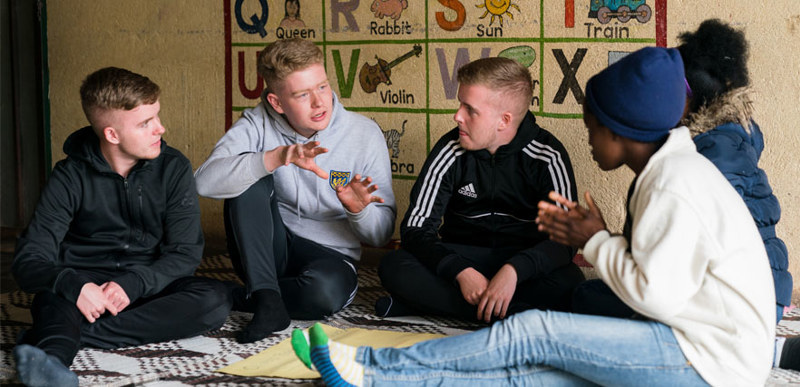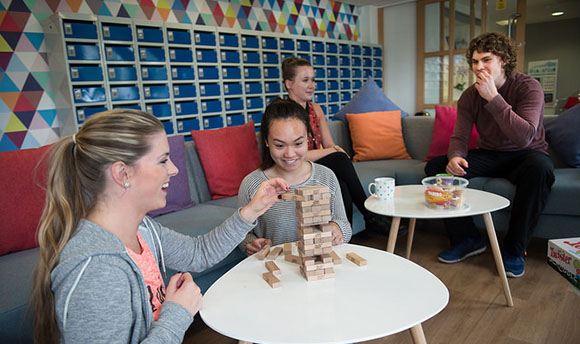Critical dialogue is helping young Scots and Malawians develop confidence and gain empowerment.
STEKASkills Youth Solidarity Project, led by QMU academics is changing how Scottish young people experience visits to, and engage with, the Global South and enables both groups develop advocacy and dialogue skills.
Following critical dialogue group work between young Malawians and visiting young Scots, STEKASkills charity was developed.
STEKASkills is a Scottish charity partnered with Malawian charity STEKA (Step Kids Awareness) to support its ambition to build a Centre for Vocational Skills & Community Enterprise in Malawi. STEKA, founded by Godknows Maseko and his wife Helen in 2007, is a grass roots Malawian NGO which creates sustainable futures for homeless and vulnerable children and young people.

Where previously, Global North pupils would traditionally visit the Global South as “voluntourists”, perpetuating a culture of aid-based support and doing work Malawians could be paid to do, STEKA members now charge visiting Global North pupils to take part in Youth Solidarity Dialogue Groups, with the earned income being invested in the development of a vocational skills centre in Malari and hiring local facilitators.
This new approach gives advocacy and voice to young Malawians as they are able to contribute towards a sustainable future for themselves through earnings and investment.
In turn, the young Scots who take part in Global South trips are developing critical dialogue skills, and a better understanding of what being a global citizen means. By taking part in facilitated dialogue, with the freedom to speak openly and honestly, both the young Malawians and young Scots gained new understandings of complex issues such as power and equality, donor dependency and agency.
Sarah Niven, Scottish teacher at Gleniffer High School, says: “The dialogue experience made a big contribution towards their [Scot’s pupils’] transition into adulthood – which can be a very isolated and painful process for teenagers... When they returned to Scotland, I feel that they were able to talk more to other pupils they wouldn’t normally talk to because they were part of a different social demographic (our school is very diverse).”
Godknows Maseko (children’s rights campaigner and founder of STEKA) describes the impact in Malawi as “Very good: most of the girls feel that no matter what they say, they can never be heard. [Now], they can plan, they can advocate, they can apply pressure on decision-makers. They know they can earn money and contribute to a sustainable Malawian future, to look after themselves while conveying a useful message to other people.”
You can read the full case study on Critical Dialogue here.







